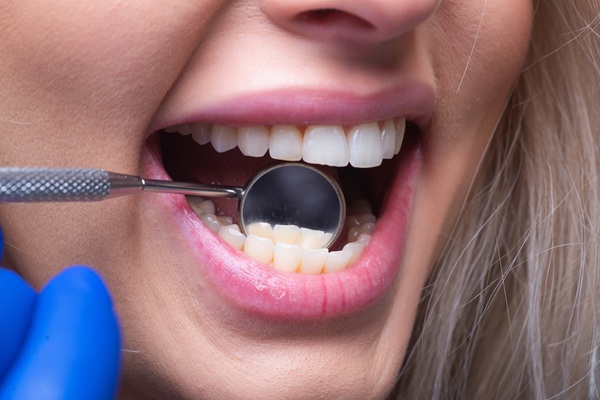Does a Tooth Filling Hurt?

When a tooth develops a cavity, a tooth filling will be required to repair the tooth and restore its function and appearance. Since tooth pain is often the first sign of a cavity, it is normal for patients to be worried about what they will feel during the filling procedure. This article focuses on what to expect during the procedure, the acceptable level of discomfort, and when to contact the dentist.
Overview of dental pain
Pain is a sign that something is wrong somewhere. A cavity can cause pain and discomfort, and it is usually the fear of heightened pain that makes patients postpone getting a tooth filling. The vital point to consider is that undergoing treatment for a cavity is the best choice. The aim is to repair the tooth and relieve the pain, which may be achieved with a tooth filling.
What to expect during the procedure
In some cases, the dentist will discover a cavity during a dental checkup. Still, it is usually symptoms like pain, sensitivity, and discomfort that force patients to visit the dental office for diagnosis and treatment. Sometimes, a severely damaged or infected tooth can be painful, and basic functions like biting and eating may become nearly impossible.
The dentist will administer an anesthetic before beginning the treatment process. A local anesthetic is administered with injection, and it usually only numbs the affected area. While patients might feel slight pressure or know when the dentist is working, they will experience little or no pain throughout the procedure. The dental professional will ensure the tooth is numb before the procedure begins.
What happens after the tooth filling?
There might be slight sensitivity after the anesthetic wears off. Any pain concerns can typically be addressed with over-the-counter medications to alleviate pain. However, most patients can usually manage the discomfort without taking anything. If the cavity was near the tooth root, the patient may experience mild irritation. Generally, any pain that may have occurred should improve, not worsen, after the filling, as the damaged part of the tooth will have been removed. If the pain worsens for any reason, then the patient should inform their dentist as soon as possible.
Sometimes, the placement of the tooth filling is high, changing the patient's typical biting pressure. It is sometimes hard to determine this before the anesthetic wears off, which means patients will only know if an adjustment is necessary after they get home that day.
Modern tooth fillings can last for several years, depending on the type of materials used. However, sometimes, the tooth filling can weaken and need to be replaced. The dentist will discuss the benefits and drawbacks of tooth filling materials during the first consultation.
The bottom line
Tooth fillings should not hurt. During the tooth filling process, the dentist will numb the treatment area, clean the cavity, and remove decayed or infected material causing the problem. Remember, the earlier a cavity is treated, the better. Call our office to learn more about the filling process.
Request an appointment here: https://emergencydentistswhittier.com or call Whittier Emergency & Implant Dentist at (562) 600-2757 for an appointment in our Whittier office.
Check out what others are saying about our dental services on Yelp: Tooth Fillings in Whittier, CA.
Related Posts
An emergency dentist can provide immediate care, and being prepared can help protect your teeth and alleviate pain while waiting for treatment. Whether you are dealing with a knocked-out tooth, severe pain, or a broken filling, having a plan in place can prevent further damage. Knowing how to manage a dental emergency before it occurs…
Tooth pain can feel overwhelming while waiting to see an emergency dentist. That is why it is crucial to have a plan for controlling pain until one can get to a dentist. Though home remedies are not a substitute for professional care, they can help ease the pain until treatment is available.Tooth pain can result…
An emergency dentist can provide fast and effective treatment for urgent dental issues. Whether a tooth is cracked, knocked out, or severely chipped, immediate care can be vital in helping to prevent further complications. Ignoring a dental injury can lead to pain, infection, or even permanent tooth loss. Therefore, knowing when to seek an emergency…
Dental veneers create a brighter, more uniform smile and often help correct cosmetic concerns that make teeth look uneven or worn. Many patients want improvements that look natural while still enhancing confidence in everyday settings. Veneers offer a versatile option for refining color, shape, and symmetry in some cases without extensive orthodontic treatment. A dentist…

